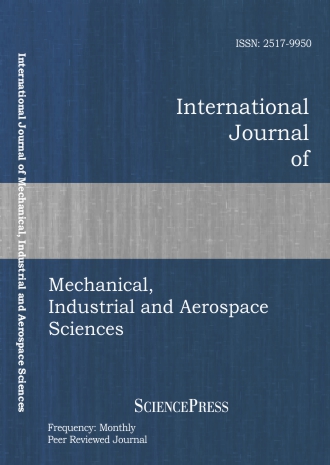
Scholarly
Volume:5, Issue: 3, 2011 Page No: 701 - 708
International Journal of Mechanical, Industrial and Aerospace Sciences
ISSN: 2517-9950
Optimum Replacement Policies for Kuwait Passenger Transport Company Busses: Case Study
Due to the excess of a vehicle operation through its life, some elements may face failure and deteriorate with time. This leads us to carry out maintenance, repair, tune up or full overhaul. After a certain period, the vehicle elements deteriorations increase with time which causes a very high increase of doing the maintenance operations and their costs. However, the logic decision at this point is to replace the current vehicle by a new one with minimum failure and maximum income. The importance of studying vehicle replacement problems come from the increase of stopping days due to many deteriorations in the vehicle parts. These deteriorations increase year after year causing an increase of operating costs and decrease the vehicle income. Vehicle replacement aims to determine the optimum time to keep, maintain, overhaul, renew and replace vehicles. This leads to an improvement in vehicle income, total operating costs, maintenance cost, fuel and oil costs, ton-kilometers, vehicle and engine performance, vehicle noise, vibration, and pollution. The aim of this paper is to find the optimum replacement policies of Kuwait Passenger Transport Company (KPTCP) fleet of busses. The objective of these policies is to maximize the busses pure profits. The dynamic programming (D.P.) technique is used to generate the busses optimal replacement policies